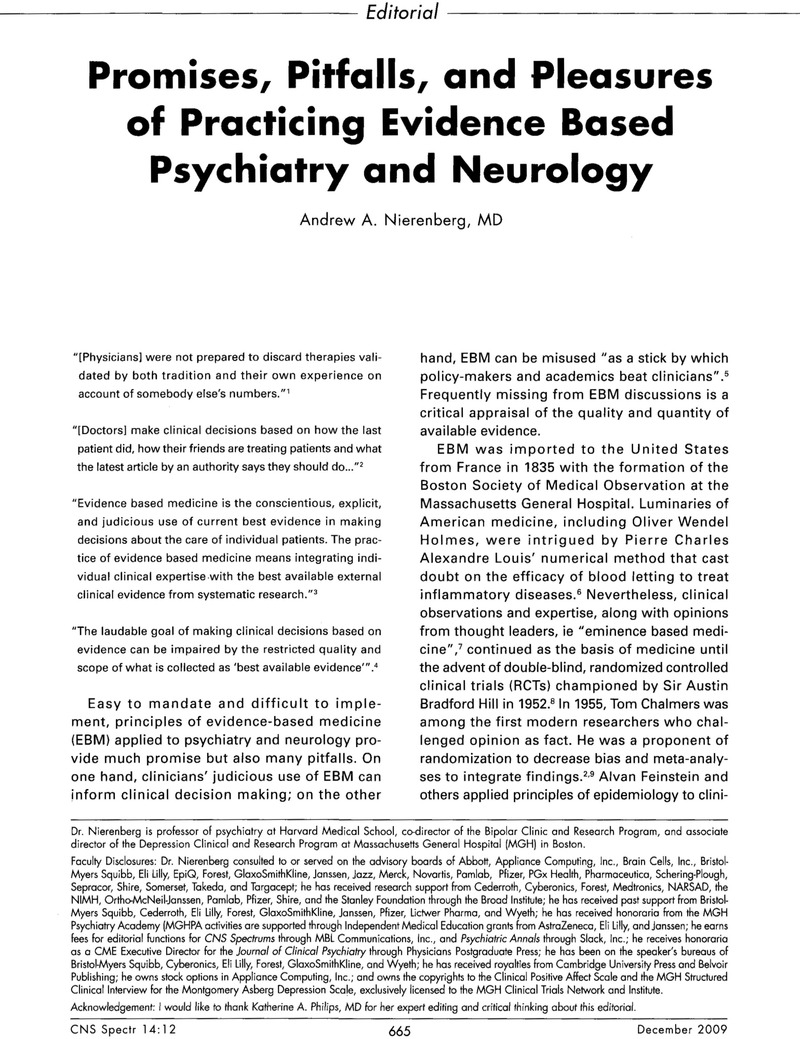Crossref Citations
This article has been cited by the following publications. This list is generated based on data provided by Crossref.
Bereczki, Daniel
2012.
Personalized Medicine: A Competitor or an Upgrade of Evidence-Based Medicine?.
Personalized Medicine,
Vol. 9,
Issue. 2,
p.
211.



